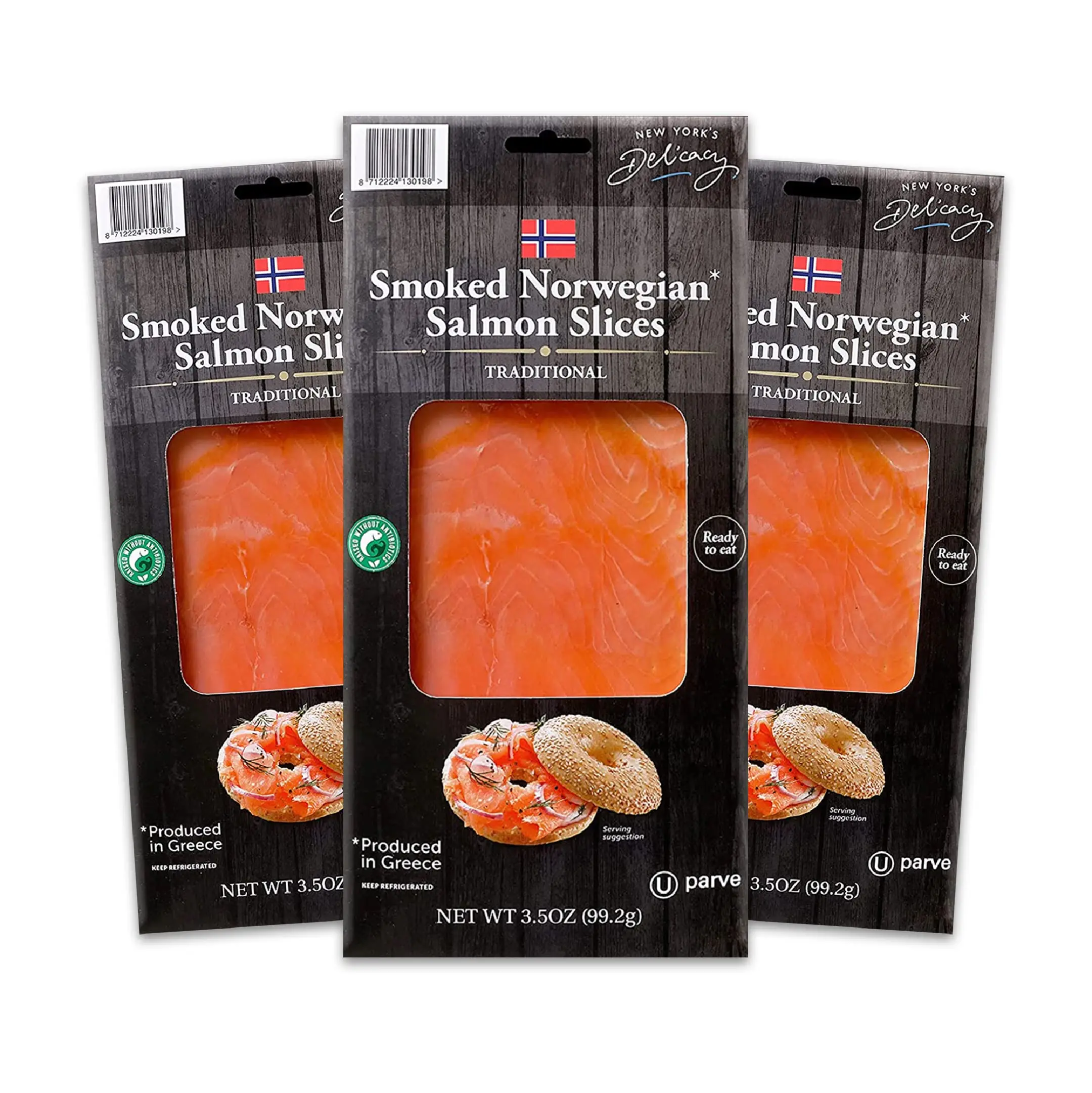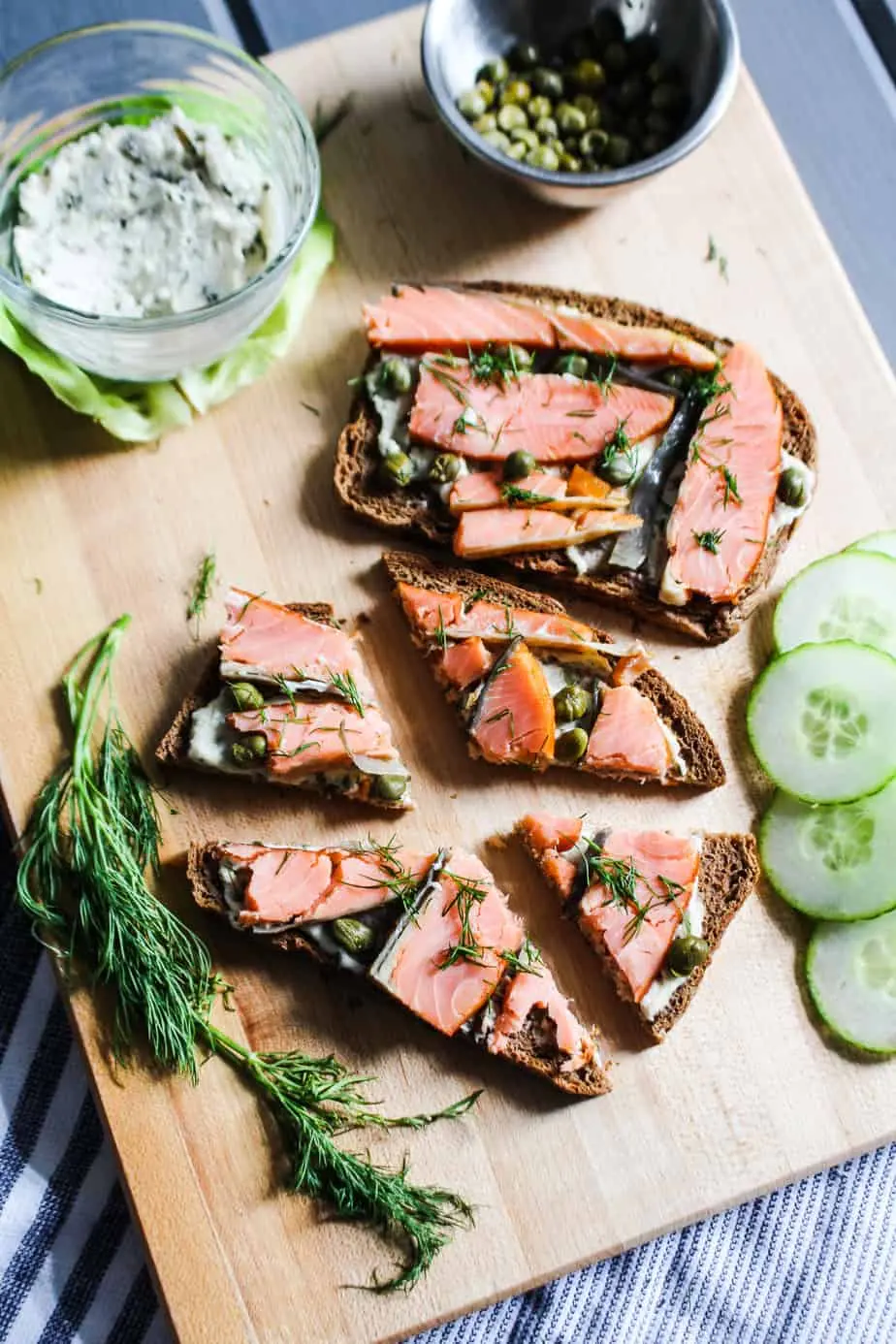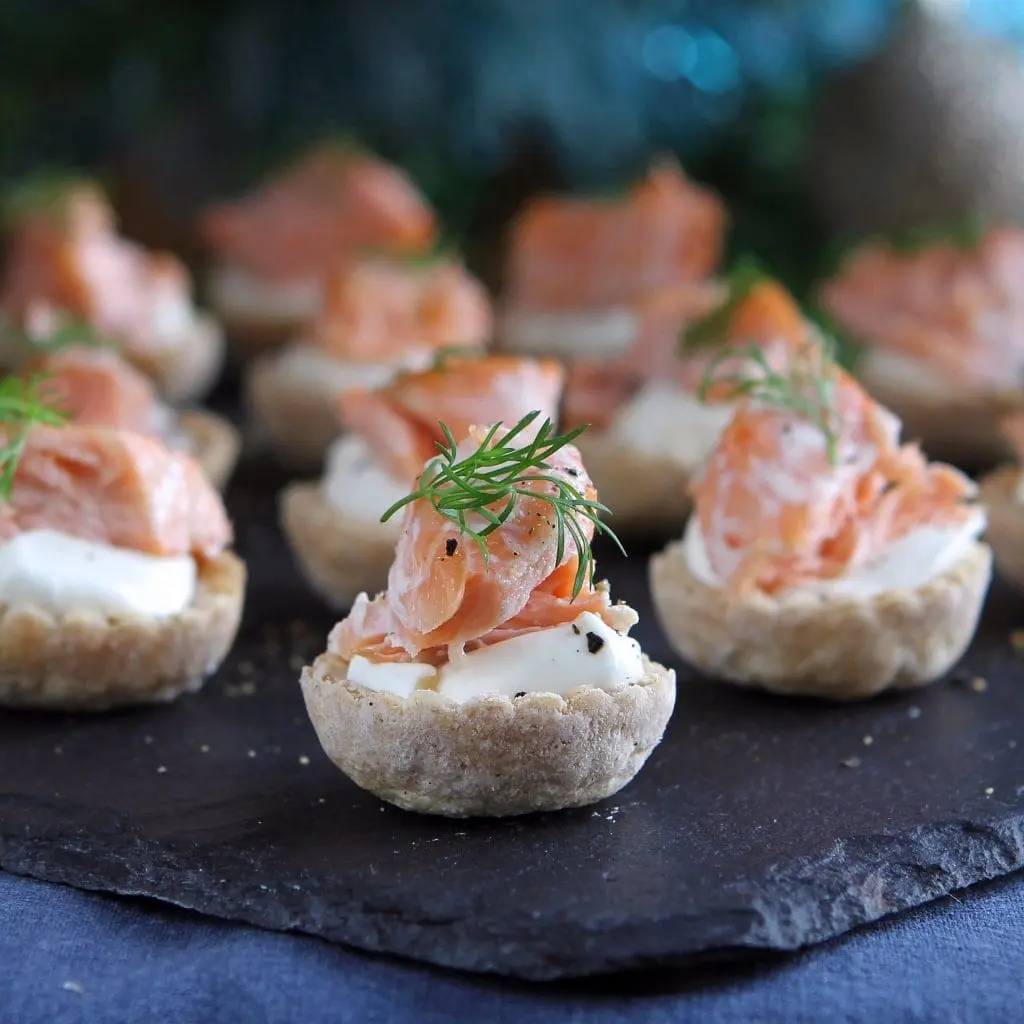If you have celiac disease or follow a gluten-free diet, you may be wondering if smoked salmon is safe to consume. In this article, we will explore whether smoked salmon is gluten-free and provide you with some useful information about gluten-free foods.
- What is Gluten?
- Gluten-Free Foods to Try
- Foods to Avoid on a Gluten-Free Diet
- Frequently Asked Questions About Gluten-Free Eating
- Are Oats Gluten-Free?
- Is Porridge Gluten-Free?
- Is Rice Gluten-Free?
- Is Cornflour Gluten-Free?
- Is Semolina Gluten-Free?
- Is Barley Gluten-Free?
- Is Couscous Gluten-Free?
- Is Baking Powder Gluten-Free?
- Is Popcorn Gluten-Free?
- Is Spelt Gluten-Free?
- Are Potatoes Gluten-Free?
- Is Cheese Gluten-Free?
- Is Gin Gluten-Free?
What is Gluten?
Gluten is a protein found in wheat, barley, and rye. It is responsible for the elastic texture of dough and gives bread its chewy texture. However, for individuals with celiac disease or gluten sensitivity, consuming gluten can cause an adverse reaction and damage the lining of the small intestine.
Gluten-Free Foods to Try
If you are following a gluten-free diet, there are plenty of delicious and nutritious options available. Here are some gluten-free foods you can enjoy:
- Buckwheat: Buckwheat is a naturally gluten-free seed that can be used in a variety of dishes. However, make sure to check labels as some buckwheat products may be manufactured in facilities that also handle gluten-containing grains.
- Rice: Rice is a versatile grain that is naturally gluten-free. It can be used in various recipes, such as egg fried rice.
- Quinoa: Quinoa is a seed that is related to spinach and chard. It can be used as a substitute for grains in pilafs, tabbouleh, and soups.
- Polenta: Made from corn, polenta is naturally gluten-free and can be enjoyed in dishes like caponata with cheesy polenta.
- Fresh Meat: Fresh, unprocessed meat is free from gluten. However, be cautious of battered or breaded products that may contain gluten.
- Fresh Fish: All fresh, dried, and smoked fish and shellfish are gluten-free, including smoked salmon.
- Eggs: Eggs are naturally gluten-free and can be a nutritious addition to your diet.
- Milk, Cream, Crème Fraîche, and Natural Yogurt: Dairy foods are naturally gluten-free and can be used in a variety of recipes.
- Butter and Vegetable Oils: Butter, ghee, and vegetable oils are gluten-free and can be used for cooking and baking.
- Plain Potatoes: Baked, boiled, and mashed potatoes are naturally gluten-free and can be enjoyed in various dishes.
- Plain Nuts and Seeds: Plain nuts, seeds, and pulses are naturally free of gluten and can be used in a variety of recipes.
- Vinegars: All vinegars, including barley malt vinegar, are gluten-free.
- Worcestershire Sauce: Worcestershire sauce is gluten-free and can add flavor to your dishes.
- Tomato Passata and Purée: Tomato passata and purée are gluten-free and can be used to enhance the flavor of your meals.
- Jam, Honey, and Marmalade: Preserves such as jam, honey, and marmalade are naturally free of gluten and can be enjoyed.
These are just a few examples of gluten-free foods you can incorporate into your diet. It's important to read labels and check for any potential cross-contamination if you have celiac disease or a severe gluten allergy.
Foods to Avoid on a Gluten-Free Diet
While there are many gluten-free options available, there are also certain foods you should avoid if you are following a gluten-free diet. Here are some examples:
- Battered and Breaded Foods: Foods that are battered or breaded often contain gluten.
- Bread, Biscuits, Pizza, Pastries, and Cakes: These products are typically made with wheat flour and are not gluten-free.
- Bulgur Wheat: Bulgur wheat is a grain that contains gluten.
- Chapattis: Chapattis are made from wheat flour and are not gluten-free.
- Couscous: Couscous is made from wheat and is not gluten-free.
- English Mustard: Some mustard brands may contain gluten, so it's important to check the label.
- Muesli and Granola: Many muesli and granola products contain gluten-containing grains.
- Wheat Pasta and Noodles: Wheat-based pasta and noodles contain gluten.
- Semolina: Semolina is made from wheat and is not gluten-free.
- Soy Sauce: Traditional soy sauce is made with wheat and is not gluten-free. However, gluten-free soy sauce options are available.
- Taramasalata: Taramasalata is a dip made with bread and fish roe and is not gluten-free.
These are just a few examples of foods to avoid if you are following a gluten-free diet. It's important to check labels and be aware of potential hidden sources of gluten.
Frequently Asked Questions About Gluten-Free Eating
Are Oats Gluten-Free?
Oats themselves are gluten-free, but they may be cross-contaminated with gluten during processing. It's essential to look for oats that are specifically labeled as gluten-free to ensure they are safe for consumption.
Is Porridge Gluten-Free?
Traditional porridge made from oats is not gluten-free unless the oats were processed in a gluten-free facility. However, porridge made from millet, buckwheat, or quinoa without added gluten-containing ingredients can be enjoyed as a gluten-free option.
Is Rice Gluten-Free?
Yes, rice is naturally gluten-free and safe to eat for those on a gluten-free diet.

Is Cornflour Gluten-Free?
Yes, cornflour is made from corn (maize) and does not contain gluten.
Is Semolina Gluten-Free?
No, semolina is made from wheat and is not gluten-free.
Is Barley Gluten-Free?
No, barley is a gluten-containing grain and is not gluten-free.
Is Couscous Gluten-Free?
No, couscous is made from wheat and is not gluten-free.

Is Baking Powder Gluten-Free?
Some baking powders may contain wheat starch to prevent clumping. However, there are gluten-free baking powder options available that use corn or potato starch instead.
Is Popcorn Gluten-Free?
Homemade popcorn without added toppings or flavorings is generally gluten-free. However, it's important to check the labels of store-bought popcorn as some flavorings may contain gluten.
Is Spelt Gluten-Free?
No, spelt is a form of wheat and contains gluten.
Are Potatoes Gluten-Free?
Yes, potatoes are naturally gluten-free. However, if you are purchasing potato products such as crisps, it's important to check the labels for any gluten-containing ingredients.
Is Cheese Gluten-Free?
Most cheese is naturally gluten-free. However, some soft and spreadable cheeses may contain added ingredients that are not gluten-free. It's important to check the label to be sure.
Is Gin Gluten-Free?
Yes, gin, as well as other spirits and liqueurs, is gluten-free. The distillation process removes any traces of gluten, making them safe for those on a gluten-free diet.

These are just a few frequently asked questions about gluten-free eating. If you have any specific concerns or dietary restrictions, it's always best to consult with a healthcare professional or registered nutritionist.
Smoked salmon is indeed gluten-free and can be enjoyed by individuals following a gluten-free diet. However, it's important to be cautious of any potential cross-contamination and read labels to ensure the product is truly gluten-free. Incorporating a variety of gluten-free foods into your diet can help you maintain a balanced and nutritious eating plan. Remember to always consult with a healthcare professional or registered nutritionist for personalized advice and guidance on your specific dietary needs.
Disclaimer: The information provided in this article is for general information purposes only and should not be considered as medical advice. Always consult with a healthcare professional or registered nutritionist for personalized advice and guidance on your specific dietary needs.
If you want to know other articles similar to Is smoked salmon gluten-free? | a guide to gluten-free foods you can visit the Gluten-free category.


Related Articles